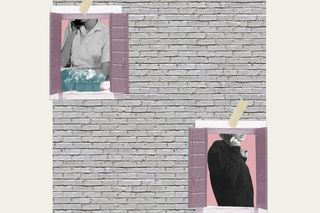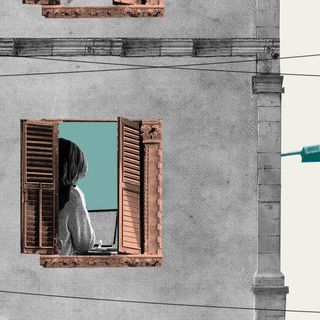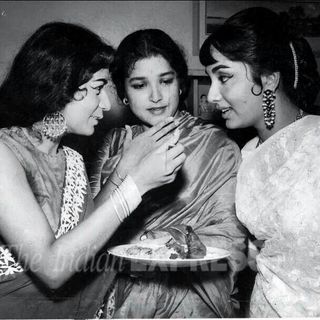
How Friendship Evolved Under Lockdown Amidst Cathartic Group Chats, Food Parcels
Amidst a collective understanding of “everything is f**cked,” 21-year-old Sukhnidh Kaur figured out how to be more ‘around’ for her friends.

In this 10-part series, we explore how Indians are embracing digital connections under the Covid19 lockdown in the absence of in-person intimacy. Here, 21-year-old Sukhnidh Kaur figures out how to be more ‘around’ for her friends, while reveling in a common ‘we are f**ked’ mental space.
The world is such a difficult place to be in right now, with the pandemic, political atmosphere, and struggles of settling into adulthood. Friendship fulfills the role of a safe, forgiving space you can enter to breathe for a moment. Escaping into a collective understanding of “yeah, everything’s f*cked” is very freeing — and sometimes, crucial for survival.
One time in lockdown, I wrote the following message to a few friends: “Guys, can we all send one message complaining about EVERYTHING we’re suffering through right now? No one reply to anyone.” And it was the best thing. Sometimes you need to vent without feeling like a burden, and sometimes you want to listen even if you don’t have the right words to say. It was a good reminder that none of us are alone in going through shit right now, and that we’re all still here together, living, breathing, figuring out how to survive. And a sense of solidarity emerged — when you’re listening just for the sake of being there, the contractual nature of relationships declines. It’s not always an ‘I’ll hold your baggage for you if you hold my baggage for me’ thing. Sometimes it’s an ‘I hear you, I see you, and I’m still here’ situation. When we speak, our words are more forgiving. There’s so much more ‘I get it’, ‘that’s understandable’, and ‘I’m here to help you figure this out when you’re ready.’
When intimacy is not exclusive to romance anymore, I don’t put the latter on a pedestal. Sure, romantic relationships are important — but only as much as the friends who’ve kept me afloat for years. I’m (unfortunately) a not-always-present friend — I’m always up for a catch-up, movie date, or venting session, but tend to be unavailable for day-to-day chatting (blame hustle culture and transitioning into adulthood). The pandemic has changed that. I think we all need each other right now, because the day-to-day, itself, has turned into tragedy. So I’m trying to be ‘around’ a lot more. This is also easier because I’m always at home and around my phone. Every call entails at least a passing acknowledgement of how shitty things are right now. I think this is so important — reminding each other that life is no longer a curated social media highlight reel and that we’re all suffering a little bit. This consensus is intimate to me — it makes me feel closer to my friends.
When a friend was feeling down on his birthday, my sister and I ordered and sent him dinner. When I was having a panic attack and couldn’t speak, another friend stayed on the phone with me in silence while I gathered the courage to talk. Virtual affection may not be a substitute for physical interaction but the intentions of friendship and intimacy are well conveyed over phone calls and Swiggy parcels, too.
Someone I met [online] during lockdown and I check in with each other every day. When this person messaged me, I was so open and receptive to conversation. That’s not me usually — but the pandemic had made me anxious, and connection seemed so tempting. It’s not like you can’t survive such a thing alone, but it’s so relieving to have someone kind by your side. Sometimes, you really need someone to be your ‘person,’ and this need is exacerbated during lockdown when uncertainty constantly looms. For starters, there’s no meeting — only the imagination of it, and reiterations of ‘hey, maybe one day when I’ll be in grad school and flights are safe and fully functional again, you can come see me.’ The thrill of getting to know a new person who is as willing to stay up talking as you are is great, but the relief of mutual reassurance upon opening up is even better.
Discerning intimacy, to me, came from reciprocity. I think we’re made to believe that we have to perform to be appreciated. But the more I acted just like myself, the more accepted I felt — and the better I got to know this person beyond pretenses, the more I enjoyed their (virtual) company, too. Reciprocation is different during lockdown in the sense that there are less expectations about time, being ‘okay’ and constantly pleasant to be around, and longevity.
Platonic intimacy has helped me look at friendships as more central to my life and well-being, and has prioritized them because if life is a devastating storm (I mean, it is, lol), friends are the spectacularly efficient lifeboat pulling me through it.
This project was done in partnership with Tinder India.
Related


How a Lockdown Love Story Evolved Entirely Online
